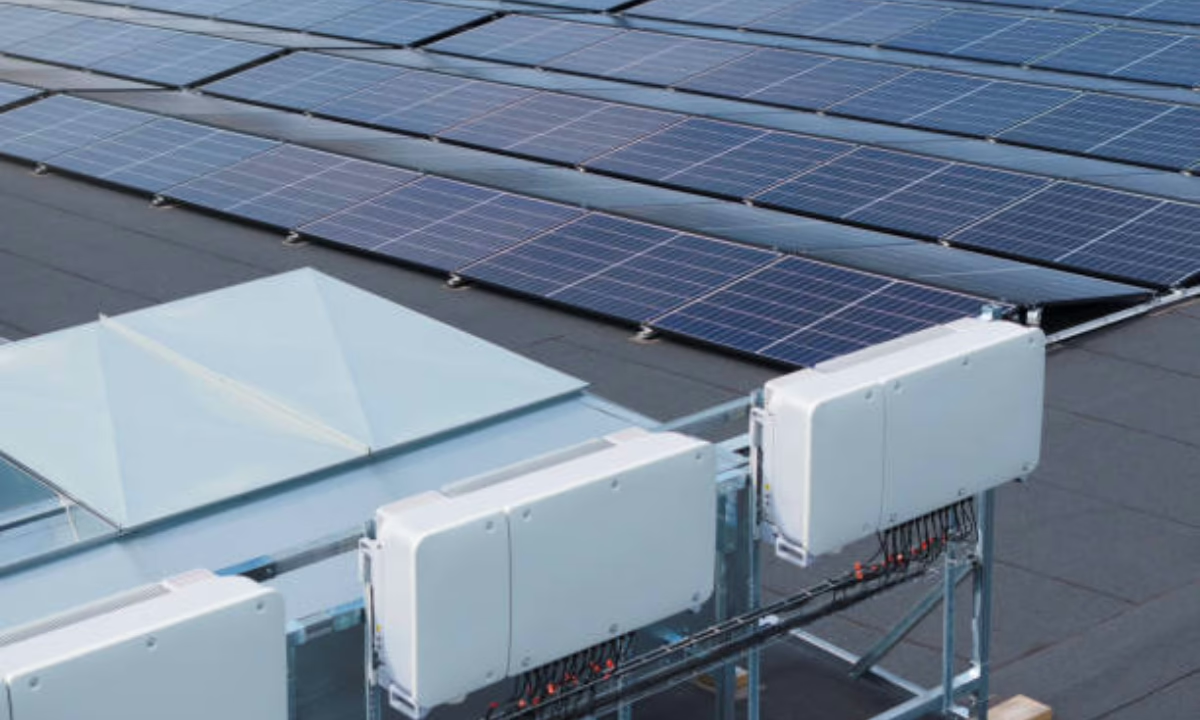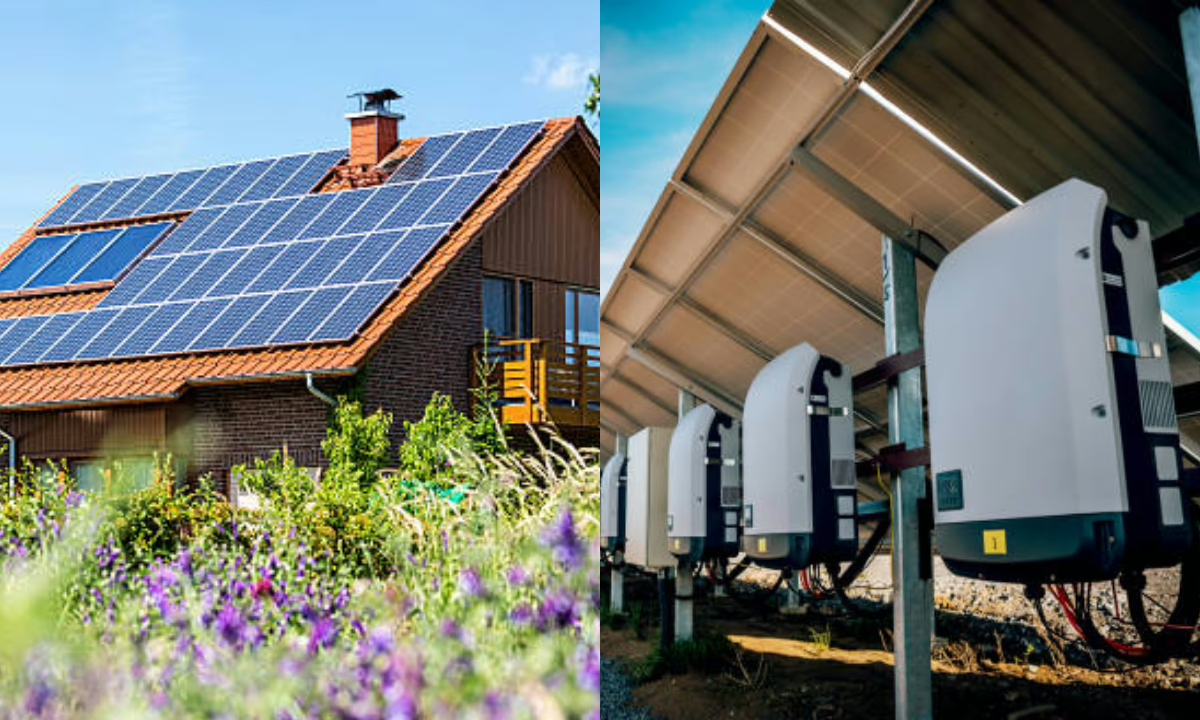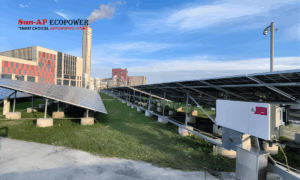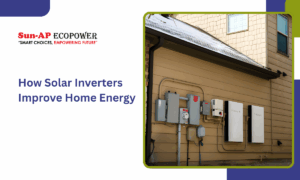Hybrid solar systems are gaining popularity among homeowners and businesses because they provide flexibility, reliable power, and long-term savings. But when choosing between a hybrid system and an off-grid system, the right fit depends on your energy needs, location, and grid access.
In this blog, we will break down what is a solar power inverter, explain how an inverter works in different systems, look at the 3 kW solar system price in India with a subsidy, compare hybrid solar inverter and off-grid solar inverter solutions, highlight tips, and help you decide which system fits you best.
What Is a Solar Power Inverter?

A solar power inverter is the heart of your solar setup. Solar panels generate electricity in Direct Current (DC), but your appliances use Alternating Current (AC). The inverter acts as the translator, converting DC into AC power so you can run your home or office on clean energy.
Without an inverter, even though your panels produce energy, it won’t be usable. That’s why choosing the right inverter is crucial for your system’s efficiency.
How an Inverter Works in Hybrid vs Off-Grid Systems
Inverters are more than just converters; they manage power flow.
- They regulate voltage and frequency to match household use.
- They use MPPT (Maximum Power Point Tracking) to maximize energy from sunlight.
- In hybrid systems, the inverter manages both the grid and the battery, switching seamlessly between solar, battery, and grid supply.
- In off-grid systems, the inverter depends only on solar panels and the battery since no grid is connected.
3 kW Solar System Price in India with Subsidy
A 3 kW solar system is ideal for medium-sized households, providing enough power for daily essentials like fans, lights, refrigerators, and even a small air conditioner.
Here’s how different types of 3 kW systems compare:
| System Type | Best For | Key Advantage |
|---|---|---|
| On-grid | Urban households with a reliable grid supply | Eligible for government subsidies and allows net metering |
| Hybrid | Homes with frequent power cuts | Combines solar, battery, and grid for an uninterrupted supply |
| Off-grid | Remote areas with no or weak grid access | Provides complete energy independence |
Many states in India, such as Delhi, also offer residential solar subsidies, making it easier for families to shift to renewable energy and enjoy quicker returns on their investment.
Hybrid vs Off-Grid: Quick Comparison
| Feature | Hybrid Solar System | Off-Grid Solar System |
|---|---|---|
| Grid Connection | Yes, works with the grid and battery | No, completely independent from the grid |
| Backup Power | Battery and Grid backup during outages | Battery and Solar only |
| Flexibility & Expansion | Highly flexible and scalable | Limited, requires careful planning |
| Best For | Homes with occasional power cuts | Remote areas with no reliable grid |
Real-Life Use Cases
- Suburban Home: With a reliable grid but frequent outages, a hybrid solar inverter ensures continuous power while reducing electricity bills.
- Rural Cottage: With no grid access, an off-grid solar inverter delivers full independence, ensuring 24×7 energy from solar and battery.
- Farmhouse Villa: A hybrid system powers daily usage while storing excess energy. At night, the battery takes over, and excess daytime energy can even be exported.
Tips for Choosing the Right System
- Check grid reliability. If you often face outages but have a grid connection, a hybrid is ideal.
- Size it right; match the inverter and battery to your daily usage.
- Battery choice matters; lithium batteries last longer than lead-acid.
- Maintenance counts; keep panels clean, and schedule yearly servicing.
- Think ahead; choose modular systems so you can expand later.
- Buy from trusted solar inverter dealers in India; ensure warranty, installation support, and after-sales service.
Frequently Asked Questions (FAQs)
Q1: What is a solar power inverter?
A: It converts solar DC power into usable AC power and manages the energy flow between solar, battery, and grid (in hybrid systems).
Q2: How does an inverter work?
A: It converts energy, regulates power output, and in hybrid models, balances solar, battery, and grid seamlessly.
Q3: Is a 3kW solar system enough for a household?
A: Yes, a 3 kW solar system is suitable for medium-sized households. It can power daily appliances such as fans, lights, refrigerators, washing machines, and even a small AC, depending on usage and battery backup.
Q4: Which is better, a hybrid or an off-grid inverter?
A: A hybrid is best if you have a grid connection with occasional cuts. Off-grid is ideal if you live in a remote area with no grid access.
Q5: Who are reliable solar inverter dealers in India?
A: Always choose experienced and authorized dealers with long-term support, such as Sun Ap Ecopower.
Final Thoughts
Both hybrid solar systems and off-grid solar systems offer unique benefits. Hybrids give flexibility and grid support, while off-grid ensures total independence. The right choice depends on your lifestyle, energy needs, and location.
At Sun Ap Ecopower, trusted solar inverter dealers in India, we help homeowners and businesses find the right system, whether hybrid or off-grid, ensuring a smooth transition to solar energy that delivers both savings and reliability.
Your solar journey begins with choosing the system that fits your needs today and secures your energy future tomorrow.




